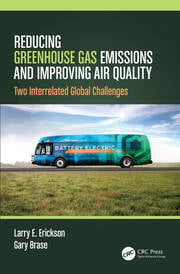ABSTRACT
Air quality is a renewable common good (or common pool resource) that is both influenced by humans and in turn influences us. It has become increasingly important to understand and modify the decisions people make in shaping this relationship, in order to reduce pollution, mitigate climate change, and avoid irreparable ecological harm. In particular, there are risks for a renewable common resource being chronically overused and devolving into a public good or a club good. Further degradation can lead to collapse and destruction of the commons, with remaining resources becoming private goods. A systemic approach to these threats that uses the design principles and polycentric approach of Elinor Ostrom implicitly includes an understanding of relevant human social behaviors and decision making processes. These judgment and decision making aspects can help to draw out how and why the Ostrom approach can work to address the issue of sustainable common pool resource management. For example, the domain-specific nature of problem solving expertise supports a focus on local organizations making, modifying, and enforcing local rules to reflect changes in social, economic, and technological contexts.


